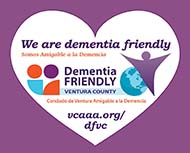What is CHF?
Congestive Heart Failure is a condition in which the pumping action of the heart becomes inadequate for the needs of the body. The inefficient pumping causes a decreased circulation of blood returning to the heart from the body and lungs. When this happens, pressure increases in the blood vessels forcing fluid (mostly water) from the blood vessels into the bodys tissues. Symptoms are determined by which side of the heart is failing. When the right side of the heart begins to fail, fluid starts to collect in the feet and lower legs. As the condition worsens, the upper legs and then the abdomen collect fluid. When the left side is failing, the fluid backs up into the lungs causing shortness of breath.
What Causes CHF?
There are many causes which can damage the pumping efficiency of the heart which can lead to CHF. In the United States, the most common causes of CHF are:
· Coronary Artery Disease
· High Blood Pressure
· Cardiomyopathy
· Disorders of the Heart Valves
Can I Prevent CHF?
The best way to prevent CHF is to avoid or carefully manage the conditions that contribute to it. Here are a few ways to reduce the risk of heart disease.
Stop Smoking
Cigarette Smoking is a major factor of arterial damage and puts you at a higher risk of heart attack and stroke.
Eat Heart Healthy Foods
Limit saturated fat, trans fat, foods high in sodium and added sugars.
Maintain a Healthy Weight
Being overweight can increase your risk for heart disease.
Exercise
Log at least 30 minutes of exercise at least 3 times a week tailored to your tolerance levels.
Watch your Cholesterol
Strive for a total cholesterol less than 200mg/dl
Monitor your Blood Pressure
Keep your numbers below 120/80 mm hg
How Can Homecare Help Patients with CHF?
Patients with congestive heart failure often feel tired and fatigued which can make it difficult to manage their daily tasks. Due to the heart’s inability to pump blood properly, patients with congestive heart failure often feel tired and fatigued which can make it difficult to manage their daily tasks. Here are some of the ways Assisted Home Health & Hospice can help those affected by CHF.
Hospice Care
End-stage CHF patients often make frequent trips to the hospital for breathing difficulty and fatigue. Many of these visits may be avoided with the Help of Assisted Home Hospice. Our hospice team provides an added level of support for cardiac patients to control CHF symptoms at home.
Home Health
Assisted Home Health Nurses will instruct and educate recently diagnosed CHF patients and their families on signs, changes in condition and self-management. Assisted nurses work alongside the physician and serve as their eyes and ears in the home.
Caregiver Services
Patients with CHF often have difficulty with daily tasks such as getting dressed, preparing food as well as other activities of daily living. Assisted Caregiver Services aides can step in to ease the burden of daily tasks for patients and their families.
If you or a loved one suffers from CHF and would like to learn more about Assisted Home Health or the services we offer, call 800-949-6555 or visit us at www.AssistedCares.com








